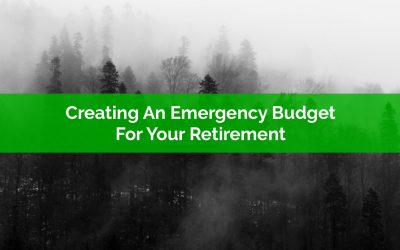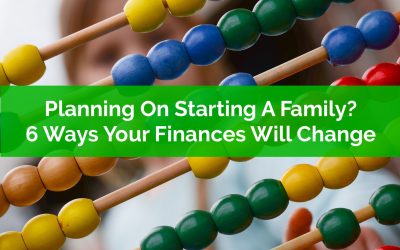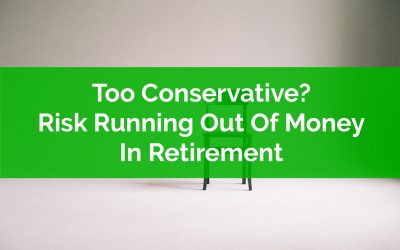Thank you for joining the waitlist!
You’re on the list for early access!
We will contact you via email when we’re ready for you to start your self-directed financial plan. In the mean time here is a quick preview…
Check out our latest blog posts…
Creating An Emergency Budget For Your Retirement
Having an emergency budget is not a new concept, it’s something we’ve written about before, but for retirees it’s particularly important.
An emergency budget is a slightly reduced budget that can be executed in times of uncertainty.
For retirees, “uncertainty” is at its highest during a recession, when investment assets have drastically reduced in price. But “uncertainty” could also be high during a long periods of below average investment returns, stagnate economic growth, or high inflation rates.
Emergency budgets are important for retirees that rely on investment assets to fund part of their retirement spending.
Often, retirement projections are done using an average rate of return. This provides a nice pretty graph but doesn’t accurately represent the range of investment returns retirees may experience in retirement.
Variable investment returns are one of the largest risks a retiree will face. A period of low or negative investment returns early in retirement can be devastating to a retirement plan. This is known as sequence of returns risk. The sequence in which a retiree experiences investment returns can have a big impact on their retirement plan. A series of low or negative investment returns early in retirement can have a very negative effect.
One important way to counteract the effect of sequence of returns risk is to reduce the draw on investment assets during periods when stock market returns are low and/or negative for a period of time.
Reducing the draw on investments, even by a small amount, helps increase the success rate of a retirement plan.
There are a few important factors when creating an emergency budget.
Planning On Starting A Family? Six Ways Your Finances Will Change
Starting a family is expensive. Estimates are thrown around that it costs in the low six figures to raise each child. Amounts like $100,000 or $200,000 per child are often quoted. While these are probably a bit dramatic, and include the opportunity cost of one parent staying at home, the fact is that starting a family can cause a number of changes to your personal finances.
Anticipating these expenses can ease the financial cost of starting a family (or at least make it a bit less stressful). If you know what’s coming, you can plan accordingly.
When you’re starting a family it’s easy to get caught up in the excitement. There are lots of new things that need to be purchased and there’s a strong desire to do the best for your future family. All these emotions can mean that things sometimes get a bit out of control (I speak from personal experience!) Purchases for beds, strollers, car seats, clothing etc. etc. can quickly add up to thousands of dollars.
In addition to new purchases, families often go through major cash flow changes when starting a family.
On the income side, parental leaves from work can significantly reduce income when starting a family. Of course there are sometimes “top ups” from employers, but those only last for weeks or a few months at best, and employment insurance is only 55% to 33% of your pay up to the max (depending on if you choose the 12-month or 18-month option). Even with these programs there is often a large decrease in income when starting a family.
One the expenses side, the big one is of course daycare expenses. Daycare expenses last for a few years but for most families this expense will go away once kids start school. But even when daycare expenses disappear there are still ongoing expenses for things like food, clothing, activities etc. etc., and these can add up over time.
And if all of that wasn’t challenging enough, starting a family also comes with new tax advantaged accounts like the RESP and new government benefits like the Canada Child Benefit (CCB).
To avoid being too overwhelming let’s look at the six major ways that your finances can change when you’re starting a family and how you might go about making the best decisions for your financial future.
Being Too Conservative Can Increase The Risk Of Running Out Of Money In Retirement
When it comes to retirement planning, one of the biggest fears is often the risk of running out of money. It can be worrisome to think about what could happen if you’re unable to support your expenses in the future.
Sometimes these fears can lead to people choosing a more conservative risk profile, or holding a lot of cash, but taking these defensive measures can often increase the risk of running out of money in the future.
A more conservative asset allocation decreases market risk, the risk we take on when we invest in the stock market. But a conservative asset allocation actually increases other types of risk, like the risk of running out of money, or the risk of being impacted by high inflation rates.
A more conservative asset allocation can actually increase risk in retirement, especially for longer retirement periods. Your typical 30-40 something couple has a very good chance of either one making it to age 100+ in the future. There is a 25% chance that one of them will make it to age 98 and a 10% chance that one of them will make it to age 101!
Without making other changes, like a lower withdrawal rate, more flexibility with spending, part-time income etc, being more conservative can actually lead to a much higher probability of running out of money before age 100.
Let’s explore why this is the case and what you need to consider when creating your retirement plan…



